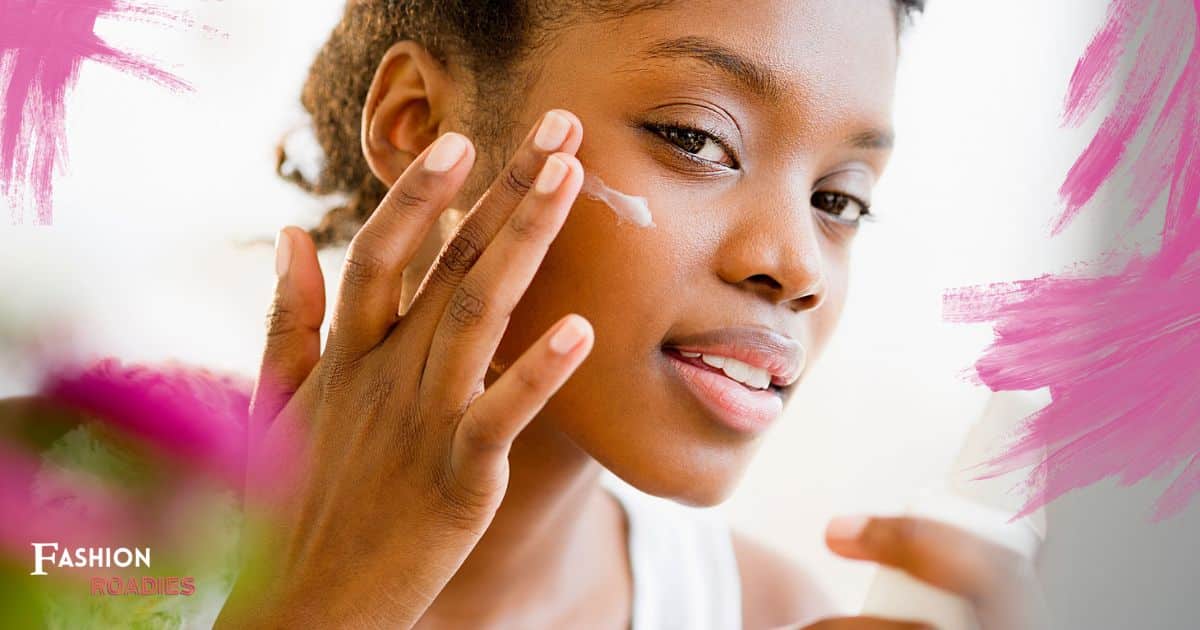Welcome to our comprehensive guide on caring for black skin! With its unique needs and challenges, black skin requires specific attention and care to maintain its health and radiance. In this article, we will provide you with valuable insights, expert tips, and practical advice on how to build an effective skincare routine, address common concerns like hyperpigmentation and acne, and protect your skin from sun damage. Join us as we navigate the journey to achieving and maintaining healthy black skin together.
Key Takeaways
- Black skin tends to be more prone to dryness and flakiness due to lower sebum production.
- Hyperpigmentation and keloid scarring are common concerns for black skin due to higher levels of melanin.
- Prioritize hydration and protection against scarring and hyperpigmentation in a skincare routine for black skin.
- Use a gentle cleanser formulated for sensitive skin to remove dirt and impurities without stripping natural oils.
Understanding the Unique Needs of Black Skin
The unique needs of black skin require a tailored approach to skincare. One of the primary concerns for individuals with black skin is dryness. This skin type tends to produce less sebum, making it more susceptible to dryness and flakiness. Addressing dryness is crucial to maintaining healthy and vibrant skin. Moisturizers with hydrating ingredients like hyaluronic acid and shea butter can help replenish moisture and restore the skin’s natural barrier.
Another concern for black skin is scarring. Due to higher levels of melanin, black skin is more prone to hyperpigmentation and keloid scarring. To minimize scarring, it is essential to protect the skin from excessive sun exposure by using sunscreen with a high SPF. Additionally, incorporating products containing vitamin C and retinol can help fade dark spots and promote cell turnover, reducing the appearance of scars.
Understanding these unique needs is the first step in building a proper skincare routine catered specifically to black skin.
Building a Proper Skincare Routine
To develop an effective skincare routine for black skin, it is important to prioritize hydration and protection against scarring and hyperpigmentation. Building a skincare routine for sensitive skin requires careful consideration of the products and ingredients used. Here are some key steps to help you create a proper skincare routine:
- Cleanse: Use a gentle cleanser formulated for sensitive skin to remove dirt and impurities without stripping the skin’s natural oils.
- Moisturize: Hydrate your skin with a moisturizer that contains natural ingredients like shea butter or jojoba oil. These ingredients help to nourish and protect your skin.
- Protect: Apply a broad-spectrum sunscreen with at least SPF 30 every day, even on cloudy days. This helps to prevent scarring and hyperpigmentation caused by sun exposure.
Cleansing Tips for Black Skin
When it comes to caring for black skin, gentle cleansing methods are crucial. Harsh cleansers can strip the skin of its natural oils, leading to dryness and potential irritation. It is important to choose cleansers that are specifically formulated for black skin, as they can help maintain its natural moisture balance and prevent common skin concerns such as hyperpigmentation and uneven skin tone.
Gentle Cleansing Methods
For optimal care of black skin, it is important to employ gentle cleansing methods. Black skin tends to be more prone to dryness, sensitivity, and hyperpigmentation, making it crucial to handle it with care. Here are some gentle cleansing techniques to incorporate into your daily skincare routine:
- Use lukewarm water: Hot water can strip the skin of its natural oils, leading to dryness and irritation. Stick to lukewarm water when cleansing your face.
- Choose a mild cleanser: Look for a gentle cleanser specifically formulated for black skin. Avoid harsh ingredients like sulfates and alcohol, as they can strip the skin and disrupt its natural pH balance.
- Be gentle when cleansing: Avoid scrubbing or rubbing the skin too harshly. Instead, use gentle circular motions with your fingertips or a soft washcloth.
Suitable Cleanser Options
Now let’s explore the available cleanser options that are suitable for black skin, ensuring effective cleansing and maintaining its health and radiance. Black skin requires gentle exfoliation to remove dead skin cells and promote a healthy complexion. When choosing a cleanser, it is important to opt for natural skincare options that are free from harsh chemicals and fragrances.
Look for cleansers that contain ingredients like shea butter, aloe vera, or coconut oil, as these can provide nourishment and hydration to the skin. Additionally, cleansers with glycolic acid or salicylic acid can help to unclog pores and prevent acne breakouts. Remember to cleanse your skin twice a day, morning and night, using lukewarm water and a gentle, circular motion. By selecting the right cleanser, you can maintain a radiant and healthy complexion.
Choosing the Right Moisturizer for Black Skin
To effectively care for black skin, it is essential to select the appropriate moisturizer. Choosing the right moisturizer for black skin is crucial in maintaining healthy and radiant skin. Here are three key considerations when selecting a moisturizer:
- Look for hydrating ingredients: Opt for moisturizers that are rich in ingredients like hyaluronic acid, glycerin, and shea butter. These ingredients help to restore and retain moisture, preventing dryness and promoting a healthy skin barrier.
- Consider the texture: Black skin tends to be more prone to oiliness and hyperpigmentation. Therefore, it is important to choose a moisturizer with a lightweight, non-greasy texture that won’t clog pores or contribute to acne breakouts.
- SPF protection: Black skin is more prone to sun damage and hyperpigmentation. Look for moisturizers with added SPF to provide protection against harmful UV rays and prevent dark spots.
Proper hydration is vital for black skin as it helps to maintain its natural moisture balance, prevent dryness, and promote a healthy complexion. By choosing the right moisturizer, you can effectively nourish and protect your black skin, ensuring it remains vibrant and healthy.
Protecting Black Skin From Sun Damage
When it comes to protecting black skin from sun damage, it is important to consider the right SPF recommendations. Black skin has a natural protection factor, but it is still susceptible to sunburn, hyperpigmentation, and dark spots. Regular application of sunscreen is crucial to maintain healthy and even-toned skin.
SPF Recommendations for Black Skin
Black individuals with black skin should use an appropriate SPF to protect their skin from sun damage. While it is a common misconception that darker skin tones are not prone to sunburn or skin cancer, the truth is that everyone, regardless of skin color, is susceptible to the harmful effects of the sun’s UV rays. Here are some SPF recommendations specifically tailored for black skin:
- Choose a broad-spectrum sunscreen with an SPF of 30 or higher to protect against both UVA and UVB rays.
- Look for sunscreens that contain ingredients like zinc oxide or titanium dioxide, which are effective in blocking out the sun’s rays.
- Apply sunscreen generously and evenly to all exposed areas of the skin, including the face, neck, arms, and legs.
- Reapply sunscreen every two hours, or more frequently if sweating or swimming.
Preventing Hyperpigmentation and Dark Spots
It is important for individuals with black skin to take preventive measures against hyperpigmentation and dark spots caused by sun damage. To prevent dark spots, it is crucial to establish a consistent skincare routine that includes protection from the sun’s harmful rays. Start by applying a broad-spectrum sunscreen with an SPF of 30 or higher every day, even on cloudy days.
Reapply every two hours, especially if you are sweating or swimming. Additionally, wear protective clothing such as wide-brimmed hats and long-sleeved shirts to shield your skin from direct sunlight. Seek shade during peak sun hours, typically between 10 am and 4 pm. By incorporating these preventive measures into your daily routine, you can minimize the risk of hyperpigmentation and keep your skin healthy and radiant.
Importance of Regular Sunscreen
To maintain the health and appearance of black skin, regular use of sunscreen is of utmost importance in protecting against sun damage. While it is a common misconception that darker skin tones are less susceptible to sunburns and skin damage, the truth is that all skin types are vulnerable to the harmful effects of the sun’s ultraviolet (UV) rays. Here are three reasons why regular sunscreen application is crucial for black skin:
- Preventing sunburns: Sunburns not only cause discomfort but can also lead to long-term skin damage. Sunscreen with a high sun protection factor (SPF) helps to shield the skin from UV radiation, reducing the risk of painful sunburns.
- Long-term effects of sun damage on black skin: Prolonged exposure to the sun can cause premature aging, wrinkles, and hyperpigmentation in black skin. Sunscreen acts as a protective barrier, preventing the harmful UV rays from penetrating the skin and causing these long-term effects.
- Reducing the risk of skin cancer: Although the risk of skin cancer is generally lower in people with darker skin tones, it is still important to protect the skin from the sun’s harmful rays. Regular sunscreen use can help minimize the risk of developing skin cancer.
Addressing Hyperpigmentation and Uneven Skin Tone
Hyperpigmentation and uneven skin tone can be effectively addressed through a combination of targeted skincare products and professional treatments. Many individuals with black skin experience hyperpigmentation, which refers to the darkening of certain areas of the skin. This can be caused by factors such as acne scars, sun exposure, hormonal changes, or skin injuries.
To treat scars and uneven skin tone, it is important to incorporate skincare products that contain ingredients like hydroquinone, retinol, kojic acid, or vitamin C. These ingredients work by lightening dark spots and promoting skin cell turnover. Additionally, natural remedies for hyperpigmentation, such as aloe vera, lemon juice, turmeric, or honey, can also be beneficial.
However, it is important to consult with a dermatologist before trying any natural remedies to ensure their safety and effectiveness. Professional treatments like chemical peels, microdermabrasion, or laser therapy can also help improve hyperpigmentation and uneven skin tone. Remember, everyone’s skin is unique, so it’s important to find the right combination of products and treatments that work best for you.
Managing Acne and Breakouts in Black Skin
Acne and breakouts can be a common concern for individuals with black skin, requiring targeted skincare and proper management techniques. Managing hormonal imbalances is crucial in addressing acne in black skin. Here are some effective strategies to help manage acne and breakouts:
- Establish a consistent skincare routine: Cleanse your skin twice a day using a gentle cleanser specifically formulated for black skin. Avoid harsh scrubbing, as it can irritate the skin and worsen acne.
- Use non-comedogenic products: Look for skincare and makeup products labeled as non-comedogenic, meaning they won’t clog your pores and contribute to acne.
- Incorporate natural remedies: Some natural remedies like tea tree oil, aloe vera, and witch hazel can help soothe and heal acne-prone skin.
Managing acne in black skin requires patience and a tailored approach. Remember, everyone’s skin is unique, so it may take time to find the right combination of products and techniques that work best for you.
Additional Tips for Maintaining Healthy Black Skin
In order to maintain healthy black skin, it is essential to prioritize hydration and protection against environmental factors. While a consistent skincare routine is crucial, there are additional steps you can take to enhance the health and appearance of your skin. Incorporating additional skincare products into your routine can be beneficial. Look for products that contain ingredients like hyaluronic acid, which helps to retain moisture, and antioxidants, which protect against free radicals.
Natural remedies can also be effective in promoting healthy skin. Ingredients like aloe vera, shea butter, and coconut oil can provide hydration and nourishment. Additionally, practicing sun protection by using sunscreen with a high SPF and avoiding excessive sun exposure can help prevent skin damage. By incorporating these tips into your skincare routine, you can maintain the health and vitality of your black skin.
FAQ’s
Can Black Skin Produce Enough Vitamin D From Sunlight Exposure?
Yes, black skin can produce enough vitamin D from sunlight exposure. However, due to higher levels of melanin, it may require longer exposure to sunlight compared to lighter skin tones. Vitamin D deficiency can occur in individuals with limited sun exposure or those with darker skin. Sunlight exposure has various benefits, including the production of vitamin D, which is crucial for bone health, immune function, and overall well-being. It is important to strike a balance between sun protection and adequate sunlight exposure to maintain optimal vitamin D levels.
Is It Necessary for Black Individuals to Use Sunscreen on a Daily Basis?
It is important for individuals with black skin to consider daily sunscreen use, as it helps protect against harmful UV radiation. However, it is also crucial to balance this with the benefits of vitamin D production from sunlight exposure.
What Are Some Common Ingredients in Skincare Products That Black Skin Should Avoid?
When it comes to caring for black skin, it’s important to be mindful of common skincare ingredients that may be harmful. Pollution can also have a significant impact, so taking proper precautions is crucial.
How Can Black Individuals Prevent Razor Bumps and Ingrown Hairs?
Preventing razor bumps and treating ingrown hairs are common concerns among individuals with black skin. To address these issues, it is important to maintain a proper shaving routine, use sharp blades, moisturize regularly, and consider alternative hair removal methods.
Are There Specific Dietary Recommendations for Maintaining Healthy Black Skin?
When it comes to maintaining healthy black skin, dietary recommendations can play a role. Consuming a balanced diet rich in antioxidants, vitamins, and minerals can promote skin health. Additionally, moisturizing regularly is crucial for black skin to retain moisture and prevent dryness and ashy appearance.
Conclusion
In conclusion, caring for black skin requires understanding its unique needs and implementing a proper skincare routine. Cleansing should be done gently, and the right moisturizer should be chosen to maintain hydration. Protecting black skin from sun damage is crucial, as is addressing hyperpigmentation and uneven skin tone. Managing acne and breakouts also requires specific attention. By following these tips and maintaining a healthy lifestyle, individuals can keep their black skin healthy and radiant.










